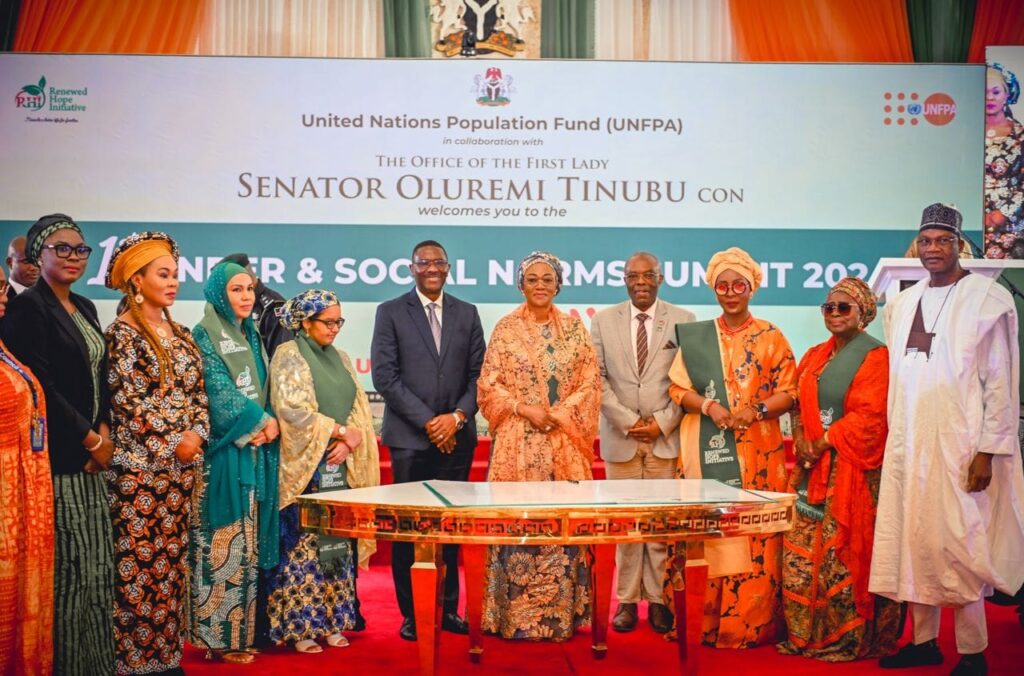
First Lady, Senator Oluremi Tinubu has called for stricter laws and harsher penalties for those convicted of rape, sexual abuse, and other forms of gender-based violence.
Senator Tinubu made this appeal at the 1st Gender and Social Norms Summit, organized by the United Nations Population Fund (UNFPA) in collaboration with her office.
In a statement from her media aide, Busola Kukoyi, Tinubu emphasized that the summit offers a crucial platform for stakeholders, including the wives of state governors, to raise awareness, share experiences, and develop effective strategies to combat gender-based violence (GBV) and other harmful practices.
“We need to create state-specific action plans and ensure that government budgets are allocated adequately to support gender equality initiatives and GBV prevention programs,” Tinubu said. “Each state has unique cultural, social, and economic contexts, and our strategies must reflect this diversity.”
She also stressed the need for stronger legislation to ensure that perpetrators of rape, sexual abuse, and other forms of gender-based violence face appropriate and enforced penalties. “These individuals are dangerous and should not be allowed to roam freely,” she added. “We must not only speak firmly but also act decisively.”
The First lady expressed alarm at the rising number of rape cases and other forms of gender-based violence, calling on law enforcement agencies, including the Inspector General of Police, the Attorney General of the Federation, and the Senate President, to implement and enforce tougher laws. “No guilty party should be allowed to go free and seek out new victims,” she stated.
The Ministers for Education, Attorney General and Minister of Justice, Women Affairs, and Youth also supported increasing awareness and ensuring accountability for perpetrators. They highlighted that better education for girls, youth development, and women’s empowerment could significantly reduce or even eliminate these harmful practices.
UNFPA Gender/FGM Analyst Karima Bungudu, while presenting the organization’s work in Nigeria, noted that nearly one in three Nigerian women have experienced some form of gender-based violence, with women with disabilities being particularly vulnerable. She pointed out that harmful practices such as Female Genital Mutilation (FGM) and child marriage, which can lead to conditions like Vesicovaginal Fistula (VVF), remain unacceptably high.
The summit, attended by state governors’ wives, state commissioners for women affairs and health, traditional rulers, and other stakeholders, concluded with the signing of the Compact of Commitment by the First Lady and the wives of state governors. This pledge reaffirms their commitment to ending GBV and other harmful practices in their states